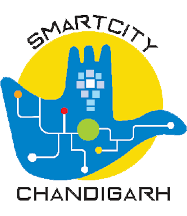

Owing to climate change and rapid urbanisation, problems related to water have become more complex in urban areas. Revive is a data aggregation tool that enables the ULB to view the data related to water and other related sectors in a spatial format. With all the data in one place, it enables the ULBs to assess the water status and infrastructure in their city and generate reports accordingly. Along with the ULB, the dashboard also enables the citizens to know about the water situation and the natural spaces of the city.






Open Source GIS-based dashboard
Eco-DRR Decision Support System
Streamlined Data Layers on water and related sector
Dynamic Data Dashboard
Near-real-time data from APIs
Reports, Graphs and Analysis of climate, green-blue spaces

Team Involve engaged with citizen partners like students, research & professional organisations, resident welfare associations and professors to execute a customised citizen engagement action plan for Chandigarh. It has laid the foundation for the future interactions with these stakeholders. A holistic toolkit for civic participation, EPIC is easy & practical for anyone to use.








The Citizen Engagement Toolkit was first piloted in my city by Team Involve. Using the action plans created by them, we had implemented 14 strategies. Particularly, the Public Bike Sharing live demo was one of the most intensive citizen engagement methods which let us interact with the intended users of the project directly. Also, the dummy application testing of our E-gov app with college students and Chandigarh residents have helped us with user interface. I recommend the EPIC toolkit for other city administrators as a foundational resource which you can use to plan your engagement strategies.
Engaging Academia for building cities is important by collaborating with the local government. ‘Team Involve’ has sown the seeds for this collaboration and I recommend the other college heads to follow the activities and act as an ideating body for your city government. I really appreciated being a part of a unique webinar where all the heads of academia and professional bodies were invited in Chandigarh Municipal corporation for ideating smart solutions for future Chandigarh. Also, the dummy e-gov mobile app testing with my students made us feel significant in planning of important smart city projects.”
The water crisis across the world and India is increasing, this is triggered by climate change events leading to disasters and increasing urbanisation. The ULBs suffer from a lack of resources, capacity and consolidated database to deal with this. All these situations together aggravate the situation of water-related disasters and hence the existing water crisis in urban areas. Along with this, data such as water supply, groundwater, treated water, rainfall, etc. are scattered across various departments. There is an evident lack of high-resolution data sets which would enable us to take methodological actions to solve the root of the problem. This lack of an integrated urban water sector platform is addressed in our project aimed to help ULB in making informed choices for water-related urban resilience.
The project aim is to provide a phase-wise strategy where the end product i.e. the dashboard ‘Revive’ would function as a decision support system for the ULBs in order to make informed decisions and formulate strategies by facilitating the stakeholders with both monitoring and assist in decision making related to urban water.
Secondary research was done to understand the entire water ecosystem. This comprised detailed literature, existing dashboards, toolkits review and mentoring from sectoral experts. The project was developed with a phase-wise strategy;
The project aim is to provide a phase-wise strategy where the end product i.e. the dashboard ‘Revive’ would function as a decision support system for the ULBs in order to make informed decisions and formulate strategies by facilitating the stakeholders with both monitoring and assist in decision making related to urban water. The dashboard would have two interfaces, one for the ULB and the other for the citizens. It would enable the ULBs to upload and access data to a single platform and use the reports to make informed decisions for the water sector. For citizens, it contains a segment for awareness and sensitization.
Phase 1 of the project involves;
● Aggregation of water sector data along with other relevant urban cross-sectoral datasets on a
single software platform.
● Aid the city stakeholders in decision-making related to urban water management by
monitoring the water supply, usage, efficiency etc, and identifying shortfalls in the region.
Phase 2 of the dashboard involves providing insight into future trends using predictive modelling based on the data fed in.
Out of 100 Smart Cities, 3 Cities i.e. Chandigarh, Pune and Jaipur were shortlisted on the basis of four parameters i.e. Water Infrastructure, Data Availability, Ease of Work and Potential Impact of the Dashboard. For the project pilot, a city that could have most of the ideal conditions for successful execution was chosen i.e. Chandigarh.
The dashboard ‘Revive’ is under development. A beta version of the dashboard has been handed over to Chandigarh Smart City and a code has been uploaded for the same on the SmartCode.